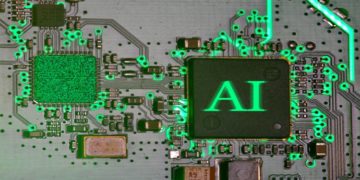Since the beginning, we’ve been considering industrial pollution to be solely responsible for affecting our environment. Well, it’s valid to some extent.
But, now, we’ve someone else in the offing – Cryptocurrency mining.
How does it work, though? Well, when it comes to mining, you’ll have to use a powerful rig, to begin with. This, in turn, can soak up a massive amount of energy from the source.
Apart from this, while trying to make the best rig in the world, many people are buying and selling more and more products. Unfortunately, it’s increasing the amount of waste in the market as well.
But how does it affect our environment? Can we take care of this somehow? Here’s what we know about this subject as of yet.
What Do We Mean By “Too Much Energy?”
I’ll be straightforward with it.
The Cryptocurrency mining procedure is a massive task, mainly from the viewpoint of energy consumption. This is how the digital coin is created.
During the beginning phase of Bitcoin, it wasn’t really a hard job to find a new coin or two. But, as the number of the same is decreasing, it’s becoming increasingly harder to mine a new coin or two. And, the more we progress, the more power it’ll take to mine.
Here’s what a transaction footprint of mining one BTC looks like –
- Carbon footprint – 1088.94kg CO2.
- Electronic Waste – 289.80 grams.
- Electrical energy – 2292.50 kWh.
The environmental concern usually derives from the power plants that are being utilized to provide energy. And, it isn’t all about mining. If you’re not using an environment-friendly app like bitcoin prime, you’ll have to transact Cryptocurrency manually.
And this single-handedly will take around 2,292.5 kWh electricity. Alarmingly enough, this amount of power can help a UK-based household to survive for 78 days.
Why Does Electricity Usage Pose A Threat?
At first glance, electricity seems like some sort of clean energy source. However, in many nations, it’s generated by burning fossil fuels.
This, in turn, emanates even more carbon into the atmosphere and promotes global warming. It’s responsible for the issue of climate change too.
Usually, when it comes to building an ASIC rig, you’ll have to buy the best GPU or computer incessantly. And, when you’re purchasing something new, you’ll throw the older ones out of the window. It, sequentially, can lead to physical and electronic waste as well.
According to a report, Bitcoin mining can produce around 30,000-ton waste every year. And, our recycling procedure isn’t up-to-the-par yet to recycle all of them.
The Reason Behind Such A Massive Energy Usage
Wee, that’s because mining digital currencies was made to be difficult purposefully. Or else, it’d have been easier for an individual to take control of the whole network.
Also…
Any popular Cryptocurrency, like Ethereum or Bitcoin, tends to operate on a PoW or Proof of Work system. It relies upon people solving equations (varying in intricacies) to include new blocks and mine new coins efficiently.
In part, this system was created specifically to counteract cyberattacks where a single person makes more than one fake identity and utilizes them to take over the network.
Here’s the catch.
Due to the complexity of the system and scarcity of rewards, most people try to solve the equation as soon as possible. For that, the processing power of your PC will matter the most.
The more power your processor has, the more electricity it’ll require to perform correctly. That’s where the problem begins again.
Is There Any Solution To This Issue?
Well, no – not really.
The way the mining procedure is progressing, we don’t think it’s going to be solved anytime soon. If it does, then the prominence of hacking will increase again massively. And, the way the Crypto market is growing right now, we can’t really afford to have such a nuisance.
In any case, we can expect new technologies to get implemented into the blockchain, which may make the mining procedure a little more flexible. Hopefully, that might help us in decreasing the negative environmental impact to some extent. Let’s see what happens, then.
David Prior
David Prior is the editor of Today News, responsible for the overall editorial strategy. He is an NCTJ-qualified journalist with over 20 years’ experience, and is also editor of the award-winning hyperlocal news title Altrincham Today. His LinkedIn profile is here.













































































